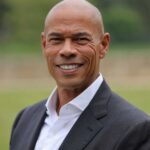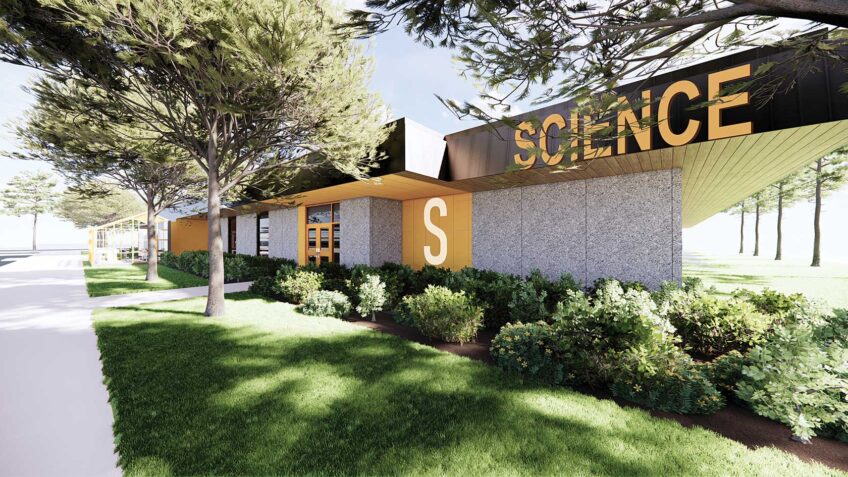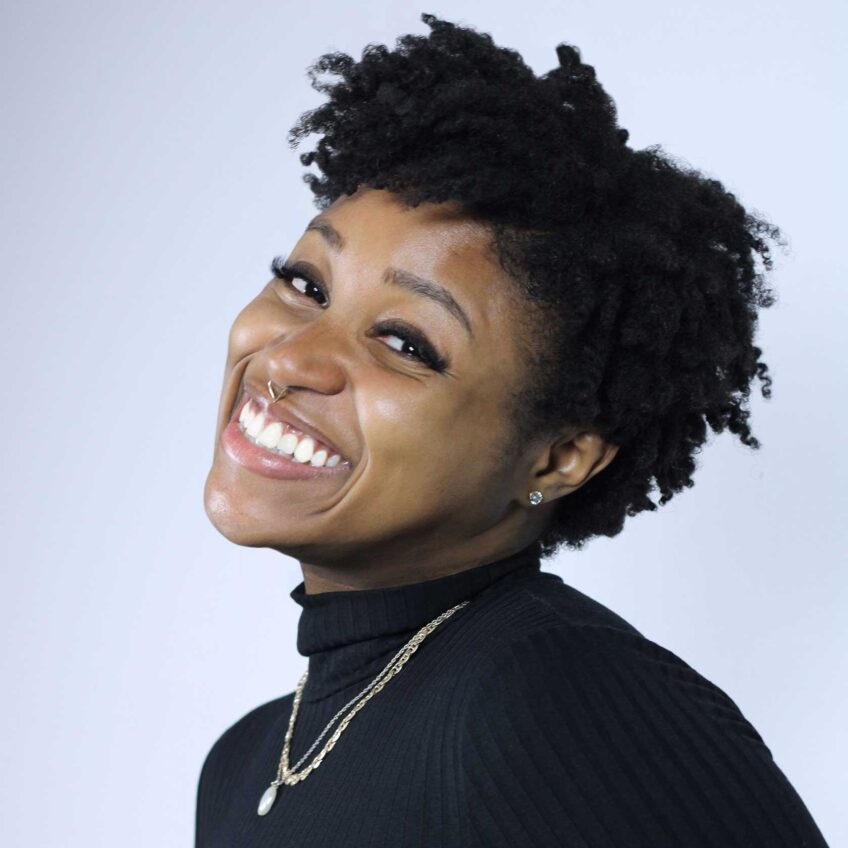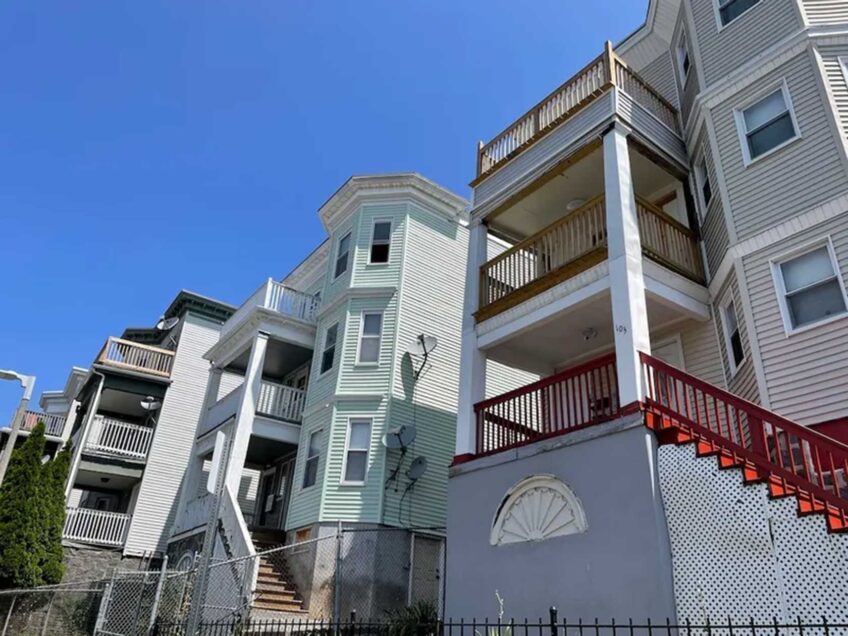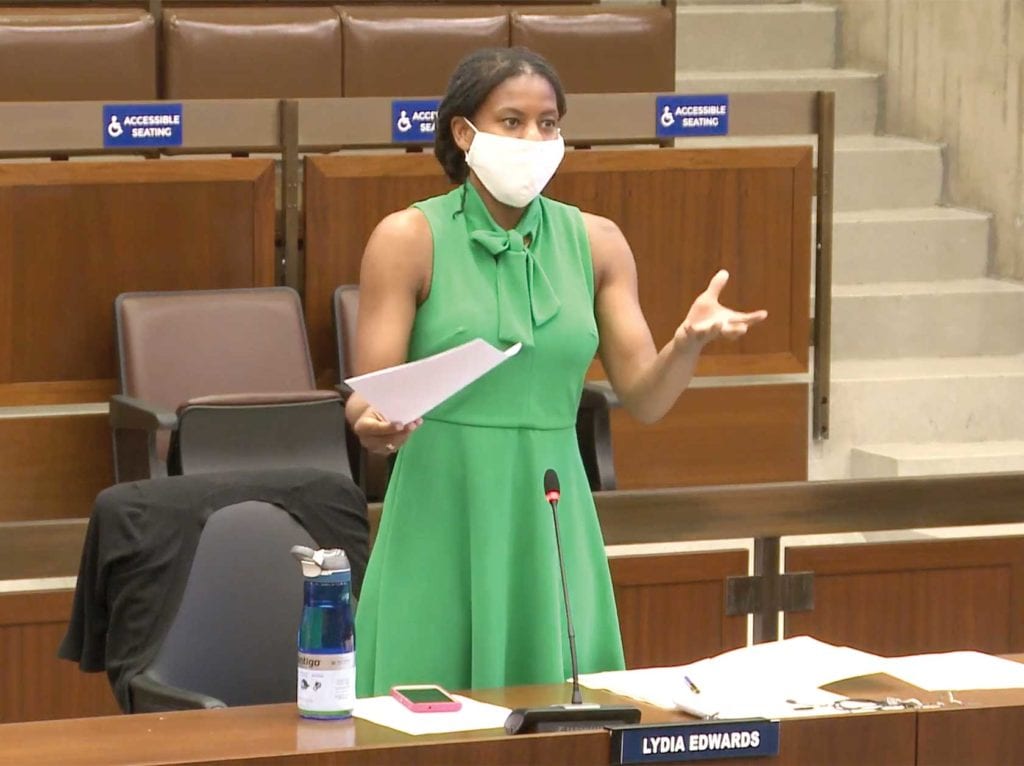
District 1 City Councilor Lydia Edwards is looking to boost the Boston Cannabis Commission’s role in approving new marijuana businesses by removing the Zoning Board of Appeal from the process.
While the ZBA has a hand in approving other commercial projects, the BCB has taken on much of that job, Edwards said. This leads to businesses being approved under the city’s new commission, and then before they can be approved by the state, sometimes getting sent back to square one by the ZBA.
“My community was a test case in Boston where we saw [the city] grant a host community agreement. At the time, they didn’t have licenses because the Boston Cannabis Board didn’t exist,” Edwards told the Banner.
The business with the host community agreement was later denied approval by the ZBA because another business was within the same “buffer zone” and was approved just before in the same hearing.
“It was such a slap in the face. If they had literally changed positions in line, then one would have gotten it, and the ZBA would have denied the other one,” Edwards continued.
On May 12 she proposed an ordinance and complementary zoning amendment that aims to remove the ZBA from the process while still making sure that cannabis businesses are not within a half-mile of each other.
“We still have the same goal of making sure there’s no neighborhood that is overly burdened with this industry,” Edwards said.
At the City Council meeting, she argued that the BCB is better equipped to make rules for cannabis businesses, given its makeup. The board includes Kathleen Joyce, the BCB chairperson, with experience regulating alcohol licenses in Boston, retired Boston Police Department Superintendent Lisa Holmes, with public safety experience, and other members with experience in labor rights and public health.
Though the ZBA is essential to zoning many business types in Boston, Edwards moved to codify cannabis business zoning power under the BCB alone so that the ZBA can be removed altogether.
“[The ZBA] decided that they’re going to be the final arbitrator of cannabis, and who gets to move to the state or not, and that’s certainly not within their purview, in their expertise, and it’s not helpful,” Edwards said.
The state and the city both run equity programs to help entrepreneurs of color, residents of neighborhoods heavily impacted by the war on drugs, or those previously arrested on non-violent drug charges open cannabis businesses. Businesses that receive technical assistance through these programs often move faster through the bureaucratic process.
Edwards says this is a matter of getting rid of some of the bureaucracy that holds these entrepreneurs back.
However, there are concerns about what businesses the BCB has given licenses to.
In November, the BCB awarded licenses to cannabis businesses near Boston College and Berklee College of Music, despite each school’s objections. At BCB hearings, there have been repeated debates about the dangers of establishments with liquor licenses versus cannabis establishments.
In March, the BCB moved to approve a cannabis business from a national chain, Harvest Inc., that was proposed 600 feet away from another shop the board approved, proposed by a local group.
The ZBA was able to step in and deny Harvest, which allowed for local outfit Evergreen to avoid competition and keep the half-mile buffer zone intact. Evergreen, proposed by Sean Berte, Jillian Domenici and Armani White in Hyde Park, will go before the ZBA sometime this year.
Edwards says the half-mile buffer should not be under the ZBA’s purview, and that will be under discussion when her ordinance is designated a hearing date. It was referred to the Committee on Small Business and Workforce Development on May 12.

